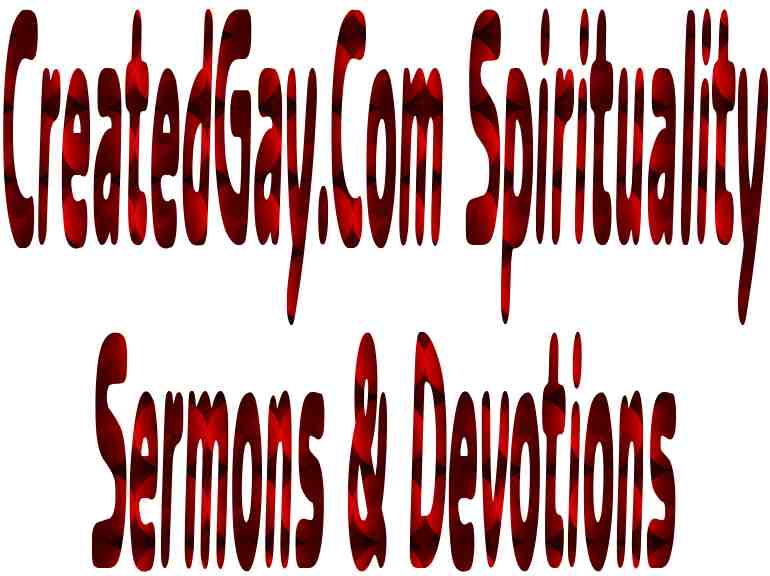Know Thyself
Gary Simpson
Hebrews 8:10
(King James Version)
For this is the covenant that I will make with the house of Israel after those days, saith the Lord; I will put my laws into their mind, and write them in their hearts: and I will be to them a God, and they shall be to me a people:
Notes
What does having a covenant with God look like for gay, lesbian, bisexual and trans people look like? And how do people who have traditionally been rejected by churches get this covenant? The Bible provides us with some of answers, probably the most important answers, but there is an element of understanding God and of being in relationship with God that comes from deep within.
In The Rumi Daybook, Muhammad is cited as saying 'he who knows himself knows his Lord.'1 We will use Muhammad's comments as a jumping off place.
Understanding and accepting your identity, your gender identity and sexual orientation is both personally and spiritually important. On a personal level, self-acceptance improves physical and mental health and can result in increased happiness and creative productivity. Spiritually, self-acceptance helps reduce tensions between sexuality and religion and opens the doors to experience spirituality in new and rich ways. When we accept who we are, we can stop fighting with God and tensions we feel with other people might also start to decrease. A case can be made that acceptance of your true gender and sexual orientation is an act of worship to Creator God. Being who you are and honouring who you are is an act of acceptance of God in your life, an act honouring and exercising the very special gifts you have, and, possibly, accepting the cosmic plans God has for you in the Kingdom.
Many gay, lesbian, bisexual and trans people come to see a very different God, after they accept their gender or their sexuality. Instead of seeing a God who limits the Kingdom to a small, homogenous remnant - affectionately referred to as the frozen chosen - they start to see God as a broad, inclusive God, who loves diversity and who actively incorporates diversity in the Kingdom. Gone are the days of living in a fear, shame and anger based religion. Gone are the days of slavishly trying to keep every commandment of God recorded in the Bible, as well as all of the human commandments churches add to the Bible in an effort to appease an angry, demanding god. The bigger god, the real and gracious God of Abraham, Isaac and Jacob is felt in their hearts and is lived out in their lives.
One way God's laws are written in our hearts is through the self-acceptance and self-understanding that lets us see and understand God.
